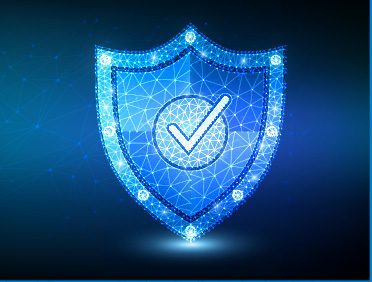
Ransomware in healthcare is spiking again. The FBI, Dept. of Homeland Security and Dept. of Health and Human Services issued a warning in October of a credible and imminent cybercrime threat that could reach up to 400 hospitals according to industry analysts. While cyber criminals have been steadily launching rebranded ransomware strains of the Ryuk virus, healthcare continues to be a go-to target again and again.
The Associated Press reports that a total of 59 U.S. healthcare providers have been impacted by ransomware in 2020, disrupting patient care at more than 500 facilities.
The latest cyber threat is being called the “most significant” the country has ever seen.
Recently, Universal Health Services (UHS) with its 250 facilities was targeted in September with a massive ransomware attack that shut down its IT networks completely and took the better part of three weeks to be restored. News reports aren’t clear how much the hackers demanded in ransom, or if the health system paid the demand.
While some feel the federal warning itself could help avert the worst results as hospitals step up precautions or expand efforts to knock down the systems cybercriminals use to launch the attacks, there is an important steps to take to keep PHI — especially in legacy systems — protected.
Decommission Aging, Out-of-Production Applications
Multiple silos of data stored in outdated systems offer some of the easiest entry points for hackers. Legacy systems that are running in read-only mode are vulnerable to technical breakdown, cyberattack or even internal threats. Less open doors and windows to defend as cyber crime entry-points is a smart and necessary step in your organization’s long-range security plan.
Our team of extraction and migration experts help healthcare delivery organizations decommission legacy systems, and safely consolidate patient, employee and business records. Since 2006, our team of experts has extracted, converted, migrated and retained records from over 500 different clinical, financial and administrative software brands. That information is secured on our cloud-based platform, HealthData Archiver®, which is live in production on Epic’s App Orchard.
Security Benefits of Working with Harmony Healthcare IT and Retaining Records in HealthData Archiver®:
- HITRUST Certification. Harmony Healthcare IT has earned HITRUST CSF Certification. That means we meet an extensive set of security-focused controls that comply with the requirements of multiple regulations and standards. Our certification demonstrates that we adhere to exacting security measures to protect patient data, appropriately managing risk involving data protection, availability, confidentiality, processing integrity and privacy.
- Single Sign-On (SSO). SSO is a feature we built into HealthData Archiver® that eliminates the need for manual login by clinicians seeking access to historical records. SSO seamlessly connects clinicians from the active EHR, in context, to the patient’s historical medical record. SSO for HealthData Archiver® is available for major EMR brands with Oauth/OpenID, Advanced Encryption Standard (AES), Security Assertion Markup Language (SAML 2.0) and other formats supported.
- Role-based Security/Audit Trails. Privacy and security for legacy data stored in an archive is as important as for active EHR records. Within HealthData Archiver®, rights and activities can be restricted and audited by user, role, group, and data domain/source. Role-based security and access controls are built in. User audit logs are HIPAA-compliant and include the unique user ID, data subject ID, function performed, and date/time event was performed. With Third-Party Auditing Integration, unusual user activity may be monitored to prevent internal threats.
- Break the Glass. Protecting the privacy and security of all medical records, both current and legacy—including those of high-profile patients—is important. HealthData Archiver® has numerous features built-in to manage, audit and protect legacy health records. Break the Glass provides:
- End user access to privileged patient information only when necessary or in the event of an emergency, requiring that a reason to access the patient record be indicated.
- A Client Administrator option to add a Gatekeeper who is responsible for managing Care Team Member access for Highly Classified patients.
- Extra additional security measures, including explicit auditing of user authentication, authorization, and data level access.
If your provider organization needs help protecting legacy records in this hostile, hacker-centric environment, Harmony Healthcare IT, a leading and award-winning health data management firm, is ready to lend a hand.
We’ve also developed several resources that provide further information about securing legacy healthcare data and deflecting cyberattacks:
Bottom line: Active Archiving is the one big defensive move your healthcare organization can take immediately to protect its EHR, ERP, and HR systems to keep cyber criminals locked out.









